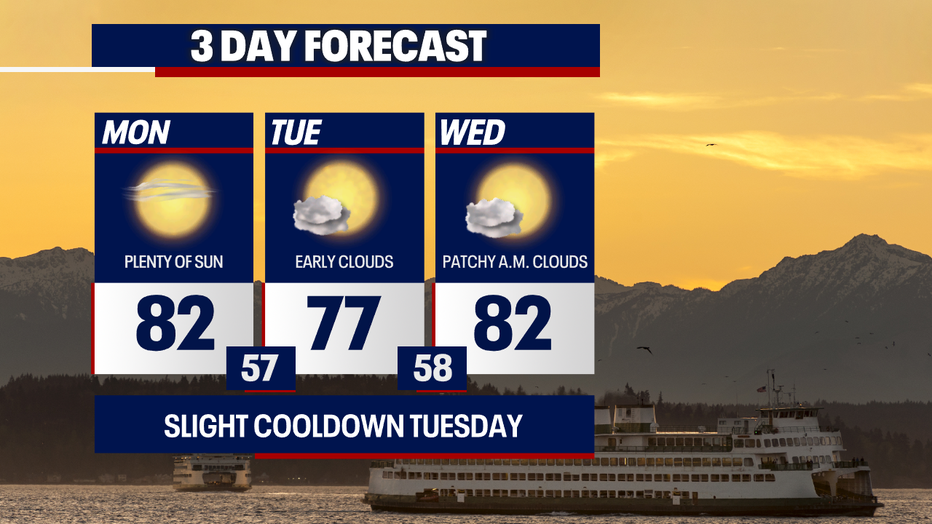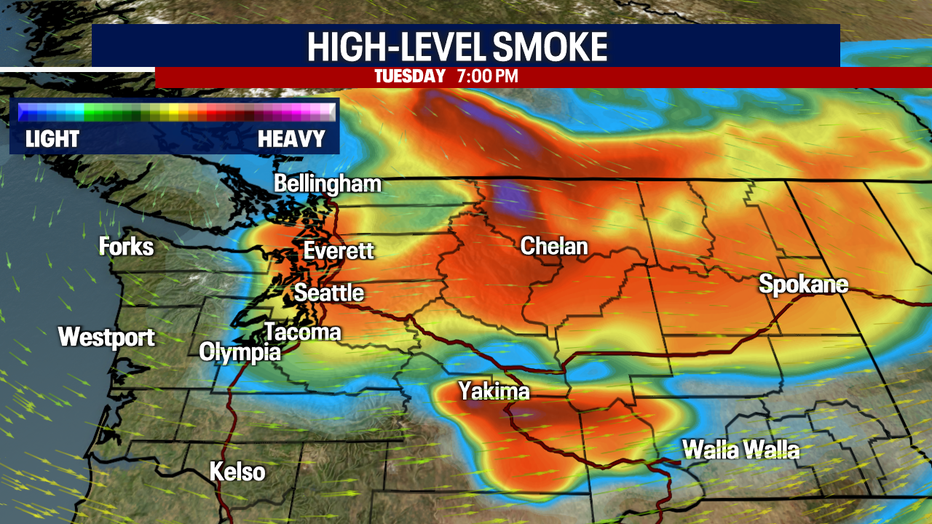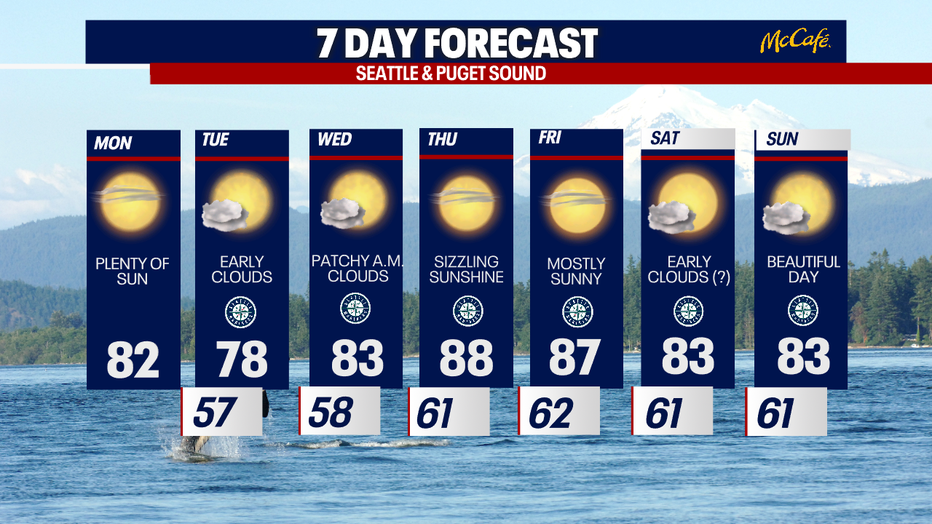Above-average warmth and smoky weather possible for Seattle

Warm summer weather continues for Pacific Northwest
FOX 13 Meteorologist Abby Acone has your Seattle area weather forecast.
SEATTLE - Highs this afternoon will soar above the average, reaching the upper 70s to low 80s across Puget Sound. While temperatures cool by several degrees Tuesday, wildfire smoke could push into Western Washington.
At first, it won't likely impact air quality much (if at all) at the surface. However, if the haze happens to filter into the lower levels somehow, air quality will deteriorate. Stay tuned for updates!
Find some ways to stay cool today: highs land in the low to mid 80s for many places in Central and South Puget Sound. It's noticeably cooler and cloudier this morning along the coast. Bountiful sunshine is on tap for the afternoon.

Highs drop to the upper 70s Tuesday in Seattle. (FOX 13 Seattle)
Tuesday and Wednesday, we'll fall back to our typical pattern of morning clouds and afternoon sunshine. Unfortunately, some smoke from fires burning in Canada could track into Western Washington Tuesday and Wednesday (potentially Thursday and Friday as well). Because most of it will stay in the upper levels of the atmosphere at first, it won't initially drop the air quality.
However, there's a slightly better chance for a little haze moving closer to the ground on Wednesday and Thursday thanks to a slight north/northeast flow at the surface. Next weekend, winds should shift, blowing from the west. This means that smoke would likely clear out by Saturday and Sunday as cleaner air pushes in from the Pacific Ocean. We'll keep a close watch on possible impacts. Keep in mind, smoke forecasting is very challenging.

High-level smoke is possible Tuesday and Wednesday in Seattle. (FOX 13 Seattle)
Sweltering heat builds Thursday and Friday around Western Washington. Temperatures cool to the low 80s this weekend. For folks without air-conditioning, there could be several nights of difficult sleeping.

Dry weather is on repeat in Seattle this week. (FOX 13 Seattle)
Stick with us for developing updates on smoke and heat!
Take good care,
Meteorologist Abby Acone and Chief Meteorologist Brian MacMillan

